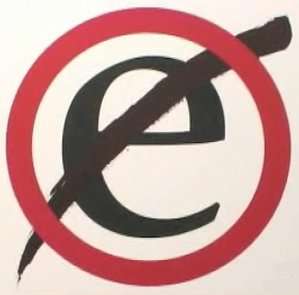A Void

In 1968, a group of friends are searching for their eccentric and insomniac friend, Anton Vowl, who went missing. Searching his apartment for clues, they find his obsession for lipograms and word play, which they dismiss as unimportant. But as they investigate his games and discover more and more they start disappearing one by one...
Written by Georges Perec in 1969, it's noted for being a book without the letter "e" which is the most common letter in the French language. Its original title was La Disparition (The Disappearance) and was translated into English by Gilbert Adair in 1994 and managed to keep the letter "e" from appearing at all.
Perec stated that he wrote A Void upon realising that if he removed all of the "e"s from his name he didn't exist any longer.
Later Perec would write a book called Three which doesn't have a single vowel in it except the letter "e".
- Arc Number: Twenty-six. Usually within the twenty-six things, one is missing and it's always the fifth one.
- Child by Rape: Subverted with Olga.
- Crapsack World: The prologue goes into a lot of detail about France and how unpleasant it is.
- Cult: Othon Lippmann's cult, that Augustus was a part of.
- Dead Little Sister: Conson has four definitely dead sons, one missing (presumed dead) and one that doesn't visit him any more.
- Death by Falling Over: Douglas after somebody cries out and he loses his footing.
- Framing Device: Squaw telling everybody the story of Augustus telling Vowl about Douglas and Olga.
- Girl Friday: Garamond is referred to as a "Man Friday"
- God Is Inept: In Anton's story, after the Vatican is unable to elect a new Pope, God talks to them and tells them to get Aignan (who has put himself on an island) as he is the perfect image of a martyr and would be perfect. After some problems, several members of the Church get to the island except he isn't there.
"... proof that Our Lord is occassionally wrong, a notion that brings about a profound diminution of faith in His flock... So God, too, alas is only human."
- Heroic Bastard: Douglas Haig and Olga.
- Hallucinations: Anton suffers from these.
- The Insomniac: Anton, of the realistic variation.
- In Which a Trope Is Described: The summary of the majority of the chapters, though they are usually unimportant to the plot.
In which you will find a carp scornfully turning down a halva fit for a king
- Large Ham: Subverted:
Aignan: "Now, now, Sphinx, no hamming it up."
- MacGuffin: Discussed in the chapter titled: Which, notwithstanding a kind of McGuffin, has no ambition to rival Hitchcock
- Augustus' ring.
- Meaningful Names: The friends' names refer to each of the vowels (including "y") except "e"
- Named After Somebody Famous: Douglas Haig
- One Steve Limit: There is the fictional character Aignan and Conson's son, Aignan. "Odd, that"
- Out with a Bang: Inverted. Olga's mother, Anastasia, is saved by having sex.
- Post Modernism: The characters are aware of the limitations in the language.
- Ismail (a character from a book Anton is reading - possibly) becomes aware that he's in a film from the 1930s.
- Riddle of the Sphinx: The fictional Aignan meets the Sphinx, though it asks a different question. It laments that it figured a kid would bring out its downfall.
- Self-Imposed Challenge: A meta-example, obviously.
- Shout-Out: Many.
- Title Drop: In reference to the missing book in a collection.